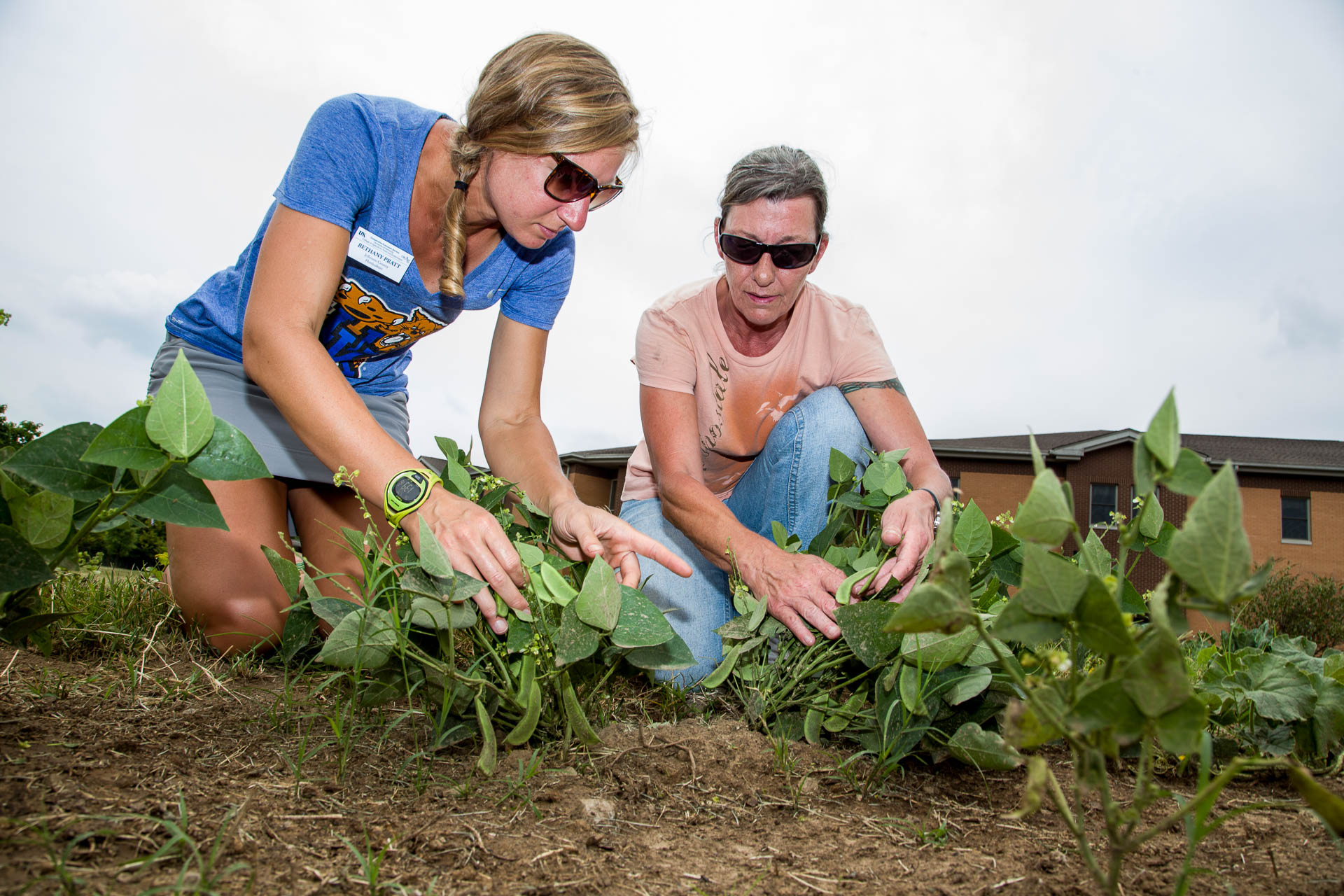Addiction recovery center garden provides residents with solace
Addiction recovery center garden provides residents with solace

In September 2016, Danielle Stone took the biggest step of her life toward sobriety. As a heroin addict with nowhere to go, she entered the long-term program at The Healing Place, a women’s addiction recovery center in Louisville. As she advanced through the program, the center’s garden provided Stone and many of its other residents with a sense of calmness in the midst of their personal storm.
“I grew up in the country, and we canned all of our own vegetables,” said Stone, who recently graduated from the program and is currently a peer mentor. “I was used to this, but not the peace that comes with it.”
The residents take charge of the garden, as they do with many other programs at the center. They receive help and guidance from Bethany Pratt, horticulture agent with the Jefferson County office of the University of Kentucky Cooperative Extension Service.
“It’s amazing that UK comes and takes their time with us to see what we’re doing and how we’re doing something different,” Stone said. “It’s very amazing that people are taking notice of places like this and women like us.”
Amanda Hall, the center’s program director, knows how important the center’s garden was to her own recovery and sobriety when she was a resident and requires all of the women in the long-term program to participate in the garden. The garden was started by a community volunteer, but that volunteer had left by the time Hall took over at the center.
“For the women to see their efforts materialize in the garden, it builds their confidence, teaches responsibility and accountability. I want every woman here to experience that,” Hall said. “Bethany has transformed that garden. It is better than it has ever been.”
Pratt comes to the campus weekly and offers gardening and science-based education in a classroom at the center, as well as hands-on instruction in the garden. During their community meetings, the women elect a garden supervisor to serve a four-week term. The supervisor leads and organizes the garden’s maintenance between Pratt’s visits. The women produce a variety of produce and herbs including watermelon, pumpkins, tomatoes and lavender. Once harvested, the food goes to feed the nearly 250 women at the center.
It has been an educational experience for Pratt as well. She said the women at The Healing Place have given her a great perspective on the other things that gardening does beyond food production.
“I always hear back from the women that this garden is doing so much more than teaching them to grow food,” Pratt said. “It’s giving them some time outside. It’s getting them to see things in a different way, find an interest that they didn’t know they had or an opportunity to take a break from trying to be in recovery. We get to connect through horticulture on a very different level.”
The garden caught the attention of Kentucky Agriculture Commissioner Ryan Quarles, who recently toured the facility.
“The Healing Place is doing wonderful work to help those struggling with addiction,” Quarles said. “As Kentucky is on the frontline of the opioid crisis, our state must think in new and inventive ways about how we can combat addiction and get Kentuckians the help they need. I’m glad to see the Healing Place is doing just that.”
It’s also a concept Kenny Hunter, UK extension specialist for food systems with the Nutrition Education Program, hopes to duplicate with other low-income audiences across the state.
“I’m interested in working with agents to develop programming that gets the SNAP-eligible audience to eat higher quality, more nutritious foods that have been produced locally. This is a great example of how they can grow some themselves,” he said.
The Healing Place and her peers there have been Stone’s saving grace.
“Normally, when you have 250 women in a small space, it doesn’t go very good, but this place is amazing,” she said. “It gives you a sense of purpose and prepares you to get out there.”
The UK Cooperative Extension Service is part of the College of Agriculture, Food and Environment. Jointly with its land-grant partner, Kentucky State University, Cooperative Extension takes the university to the people in their local communities, addressing issues of importance of all Kentuckians.
Community & Leadership Development Extension Horticulture

